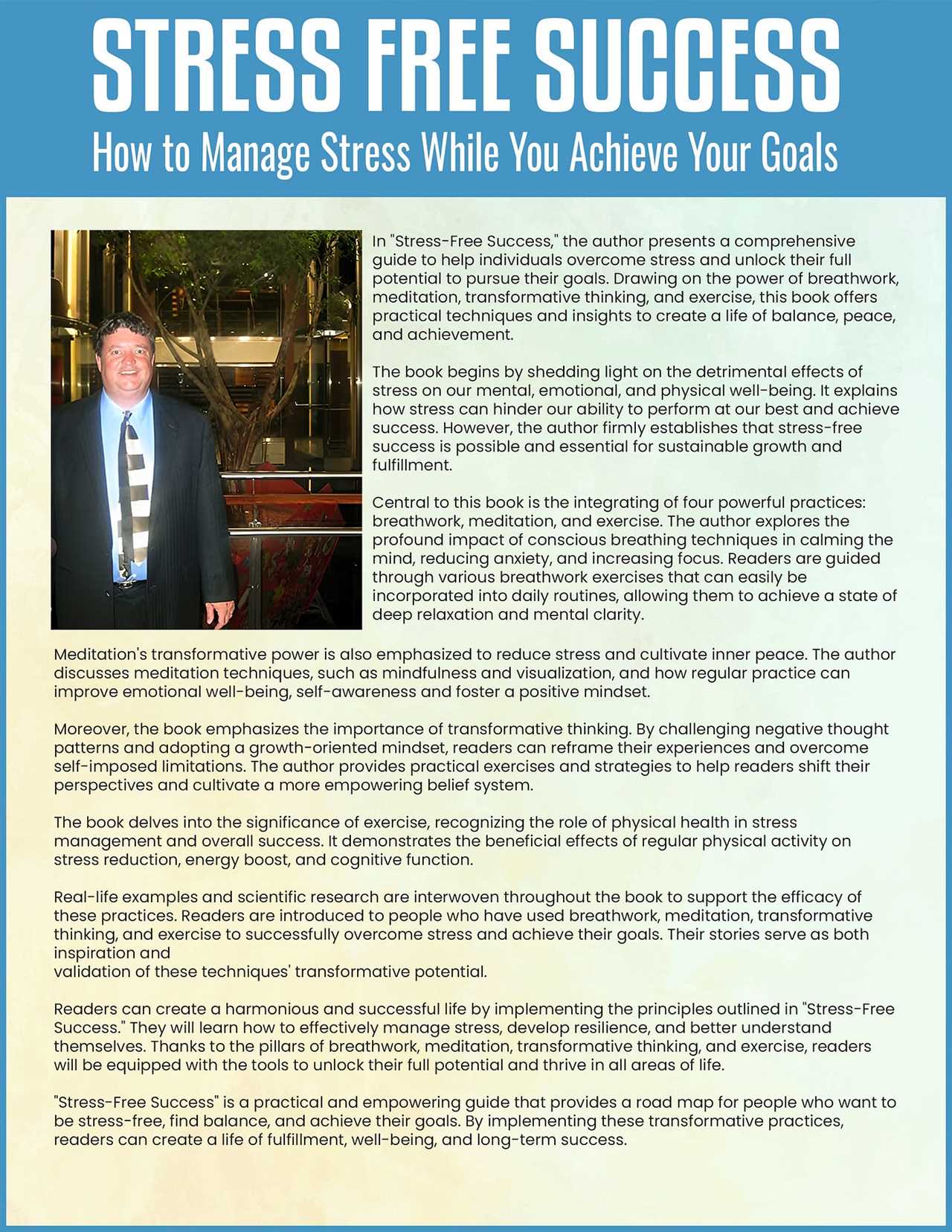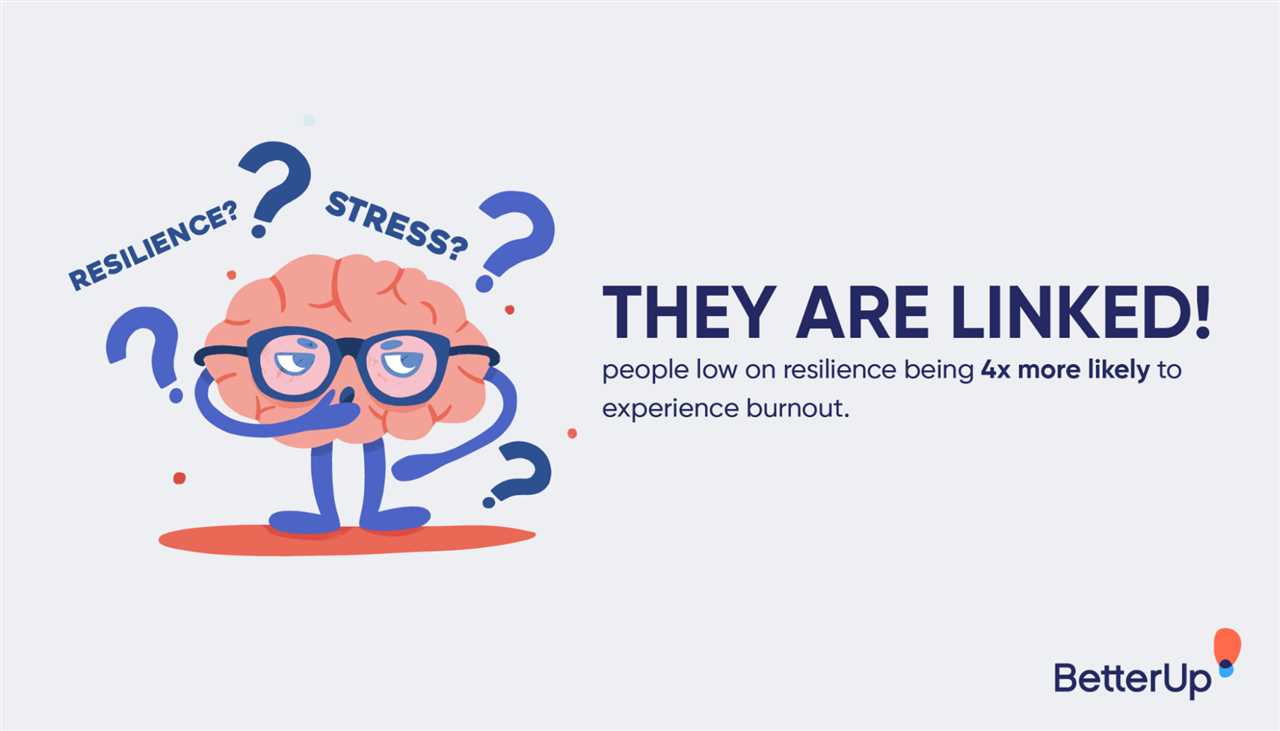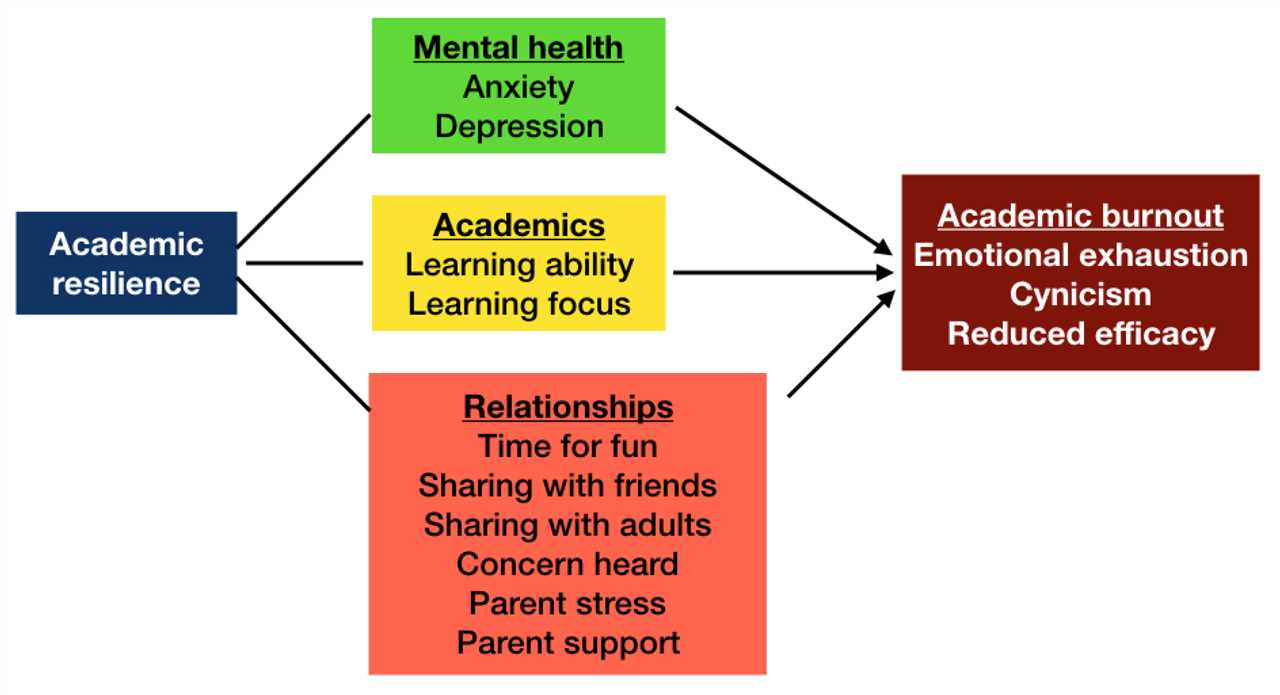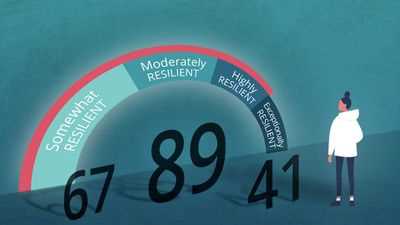
In today’s fast-paced world, endurance and resilience are often celebrated as virtues. We admire those who possess a strong sense of determination and perseverance, who never give up no matter the obstacles they face. However, there can be too much of a good thing, and excessive resilience can have its limitations.
When we rely too heavily on our ability to bounce back from adversity, we may neglect our own well-being and fail to address the root causes of our challenges. It’s important to recognize that being strong doesn’t mean we have to carry the weight of the world on our shoulders. We need to find a balance between our tenacity and our ability to ask for help when we need it.
Excessive resilience can also lead to a lack of self-care. We may push ourselves too hard, constantly striving for success without taking the time to rest and recharge. This can result in burnout and a decline in overall well-being. It’s important to remember that self-care is not a sign of weakness, but rather a necessary component of a healthy and fulfilling life.
By finding balance and thriving, we can overcome the limitations of excessive resilience. We can learn to listen to our bodies and minds, and give ourselves permission to take breaks when needed. We can cultivate self-compassion and embrace the idea that it’s okay to not always be strong. It’s through this balance that we can truly thrive and find lasting happiness and fulfillment.
Understanding the Dangers of Excessive Resilience
In today’s fast-paced world, determination, perseverance, and tenacity are often seen as admirable qualities. We are encouraged to push ourselves to the limit, to never give up, and to always bounce back from adversity. Resilience, grit, and a strong will are celebrated as the keys to success. However, there can be too much of a good thing.
Excessive resilience can be dangerous. When we are too focused on pushing through obstacles and never allowing ourselves to rest or recover, we put ourselves at risk of burnout and physical and mental exhaustion. The constant pressure to be strong and resilient can lead to chronic stress, anxiety, and even depression.
While it is important to have a certain level of resilience to navigate life’s challenges, it is equally important to recognize our limits and give ourselves permission to take breaks and seek support when needed. It is okay to ask for help and to lean on others when we are feeling overwhelmed.
Excessive resilience can also lead to a lack of self-care. When we are constantly pushing ourselves to the limit, we may neglect our physical and emotional well-being. We may ignore signs of fatigue, pain, or emotional distress, believing that we can simply power through. This can have serious consequences for our long-term health and happiness.
It is important to find a balance between resilience and self-care. We need to be able to bounce back from adversity, but we also need to prioritize our own well-being. This means listening to our bodies and minds, taking breaks when needed, and seeking out activities and relationships that bring us joy and fulfillment.
So, while determination, perseverance, and resilience are valuable qualities, it is important to recognize that there can be too much of a good thing. Excessive resilience can lead to burnout, chronic stress, and a lack of self-care. By understanding the dangers of excessive resilience, we can strive for a healthier balance and truly thrive.
The Negative Impact on Mental Health
The determination to succeed and the drive to overcome challenges are often seen as admirable qualities, but when taken to the extreme, they can have a detrimental effect on mental health. Having too strong of an endurance and perseverance can lead to an excessive amount of resilience, which can be harmful in the long run.
Resilience is often praised as a valuable trait, and it is indeed important for navigating through life’s difficulties. However, when resilience becomes excessive, it can become a burden. People with too much resilience may feel the need to constantly push themselves and never allow themselves to rest or recover. This constant pressure to keep going can lead to chronic stress, burnout, and a decline in mental well-being.
Furthermore, excessive resilience can prevent individuals from seeking help when they need it. They may feel that they should be able to handle everything on their own and that asking for assistance is a sign of weakness. This can lead to feelings of isolation and a lack of support, further exacerbating mental health issues.
Additionally, having too much resilience can make it difficult for individuals to recognize and address their own emotional needs. They may prioritize pushing through difficult situations and ignore their own feelings and emotions. This can lead to a disconnect between their mental and emotional states, which can negatively impact their overall well-being.
In conclusion, while resilience and grit are important qualities, it is crucial to find a balance and avoid excessive perseverance. Taking care of one’s mental health should be a priority, and seeking support and allowing oneself to rest and recover are essential steps in maintaining overall well-being.
The Toll on Relationships
Grit, tenacity, and perseverance are often praised as admirable qualities, and for good reason. They allow individuals to overcome obstacles and achieve success in various areas of life. However, when taken to the extreme, too much resilience can have negative consequences, particularly on relationships.
Resilient individuals are often seen as strong and capable, able to endure and bounce back from any challenge that comes their way. While this can be inspiring, it can also create a dynamic where others feel like they can’t fully support or connect with the resilient individual. They may feel as though their own struggles are insignificant in comparison, or that they are unable to provide the necessary emotional support.
Additionally, individuals who rely too heavily on resilience may struggle with vulnerability and opening up to others. They may fear that showing any signs of weakness or asking for help will be seen as a failure, and therefore, they keep their struggles to themselves. This can lead to a breakdown in communication and emotional intimacy within relationships.
Moreover, excessive resilience can lead to a lack of balance in life. Resilient individuals often prioritize work, goals, and achievements above all else, including their relationships. They may neglect spending quality time with loved ones, fail to prioritize their partner’s needs, or struggle to be emotionally present in their relationships.
In order to find balance and thrive in relationships, it is important to recognize the toll that excessive resilience can have. It is crucial to prioritize open communication, vulnerability, and emotional support. By acknowledging and addressing the limitations of excessive resilience, individuals can strengthen their relationships and create a healthier, more balanced approach to life.
The Stifling of Personal Growth
Too much perseverance and resilience can sometimes become a hindrance to personal growth. While grit and strong tenacity are important qualities to possess, an excessive amount of determination can lead to stagnation rather than progress.
When individuals become too focused on pushing through challenges without taking the time to reflect and learn from their experiences, personal growth can be stifled. It is important to strike a balance between resilience and self-reflection in order to truly thrive.
Excessive resilience can prevent individuals from acknowledging their weaknesses and seeking help when needed. It can create a mindset of “I can handle anything on my own,” which can limit opportunities for growth and collaboration.
Additionally, too much resilience can lead to a fear of failure. When individuals are constantly pushing themselves to be strong and never show vulnerability, they may avoid taking risks or trying new things for fear of not meeting their own high standards.
Personal growth requires a combination of resilience and the ability to adapt and learn from setbacks. It is important to recognize that it is okay to ask for help, to take breaks when needed, and to embrace vulnerability. These aspects of personal growth can be overlooked when there is an excessive focus on perseverance and resilience alone.
In order to truly thrive and reach our full potential, we must find a balance between being strong and determined, and allowing ourselves to be vulnerable and open to growth. By embracing both resilience and self-reflection, we can overcome the limitations that excessive resilience can impose and continue on a path of personal growth and development.
Recognizing the Need for Balance

In a world that values endurance, grit, and resilience, it can be easy to fall into the trap of believing that being strong and persevering through any challenge is always the best approach. However, there is such a thing as too much of a good thing. When we push ourselves too hard and refuse to acknowledge our limits, we risk burning out and damaging our mental and physical well-being.
Recognizing the need for balance is crucial. While resilience and tenacity are important traits to have, it is equally important to understand that we are human and have our limitations. It is okay to take breaks, to rest, and to ask for help when needed. By acknowledging and respecting our boundaries, we can prevent exhaustion and maintain our overall well-being.
Striving for balance means finding a middle ground between pushing ourselves and taking care of ourselves. It means recognizing when we need to step back and recharge, even if it goes against our natural inclination to keep pushing forward. It means understanding that self-care is not a sign of weakness, but rather a necessary part of maintaining our long-term resilience.
So, let’s not forget that while resilience and perseverance are valuable traits, they should not come at the cost of our health and happiness. Let’s honor our limits and embrace the need for balance in our lives.
The Importance of Self-Care
In the pursuit of success, it is easy to become caught up in a cycle of constant striving and pushing ourselves to the limit. We are often applauded for our endurance, determination, and tenacity, as these qualities are seen as signs of strength and grit. However, too much of a good thing can be detrimental, and this is especially true when it comes to neglecting our own self-care.
Perseverance is an admirable trait, but it should not come at the expense of our well-being. When we push ourselves too hard and neglect our physical, mental, and emotional needs, we run the risk of burnout and exhaustion. It is important to remember that taking care of ourselves is not a luxury, but a necessity.
Self-care can take many forms, depending on our individual needs and preferences. It could be as simple as taking a break to rest and recharge, engaging in activities that bring us joy and relaxation, or seeking support from loved ones or professionals when needed. Prioritizing self-care allows us to refuel and replenish our energy, making us more resilient in the face of challenges.
| Benefits of Self-Care |
|---|
| 1. Improved physical health |
| 2. Enhanced mental well-being |
| 3. Increased productivity and focus |
| 4. Better stress management |
| 5. Stronger relationships |
By practicing self-care, we can break the cycle of constant striving and find a balance that allows us to thrive. It is not a sign of weakness to prioritize our own well-being; rather, it is a testament to our strength and self-awareness. So, let us remember the importance of self-care and make it a priority in our lives.
The Value of Setting Boundaries
In the pursuit of resilience, grit, and tenacity, it is often easy to overlook the importance of setting boundaries. While determination and a strong endurance are admirable qualities, too much of these can lead to burnout and a decrease in overall well-being. Setting boundaries is essential for maintaining a healthy balance and thriving in all aspects of life.
Boundaries act as a protective shield, helping to prevent the negative effects of excessive resilience. They allow individuals to prioritize their own needs and allocate time and energy towards activities that bring joy and fulfillment. By setting boundaries, individuals can create a sense of control over their lives, making decisions that align with their values and goals.
Setting boundaries also helps to establish healthy relationships. It allows individuals to communicate their needs and expectations to others, fostering open and honest communication. Boundaries provide clarity and prevent misunderstandings, leading to stronger and more fulfilling connections with others.
Furthermore, setting boundaries allows individuals to avoid overextending themselves and taking on too much. It helps to prevent burnout and promotes self-care. By setting limits on the amount of time and energy dedicated to work, relationships, and other commitments, individuals can maintain a healthy balance and prevent exhaustion.
In conclusion, while resilience, grit, and tenacity are important qualities, it is crucial to recognize the value of setting boundaries. Boundaries enable individuals to prioritize their well-being, establish healthy relationships, and prevent burnout. By finding the right balance between determination and setting limits, individuals can thrive in all aspects of life.
The Role of Emotional Intelligence

Emotional intelligence plays a crucial role in finding balance and thriving in the face of excessive resilience. While grit, strong determination, and perseverance are often praised, too much of these qualities can lead to burnout and a lack of self-care. This is where emotional intelligence comes in.
Emotional intelligence allows individuals to understand and manage their emotions effectively. It involves being aware of one’s emotions, recognizing the emotions of others, and using this knowledge to navigate challenging situations.
When faced with obstacles, individuals with high emotional intelligence are able to regulate their emotions and maintain a sense of calm. They are able to assess the situation objectively and make rational decisions, rather than reacting impulsively. This ability to stay composed and focused is essential in overcoming challenges and finding a healthy balance.
Additionally, emotional intelligence enables individuals to recognize when they need to take a step back and prioritize self-care. It helps them understand their limits and set boundaries, preventing them from pushing themselves too hard and risking burnout.
Furthermore, emotional intelligence fosters empathy and understanding towards others. It allows individuals to connect with and support those around them, creating a strong support system. This sense of community and connection is essential in maintaining overall well-being and thriving in the face of adversity.
In conclusion, while resilience, determination, and perseverance are important qualities, emotional intelligence plays a crucial role in finding balance and thriving. It allows individuals to regulate their emotions, prioritize self-care, and foster connections with others. By cultivating emotional intelligence, individuals can overcome the limitations of excessive resilience and achieve a healthier and more fulfilling life.
Strategies for Thriving

Thriving in the face of adversity requires a combination of tenacity, perseverance, and a strong sense of resilience. It is important to develop strategies that will help you overcome challenges and bounce back from setbacks. Here are some strategies to help you thrive:
| 1. Embrace Resilience: | Resilience is the ability to adapt and bounce back from adversity. Embrace your resilience and use it as a tool to overcome obstacles. |
| 2. Cultivate Grit: | Grit is the combination of passion and perseverance. Cultivate grit by setting long-term goals and staying committed to them, even when faced with challenges. |
| 3. Build Endurance: | Endurance is the ability to sustain effort over a long period of time. Build your endurance by consistently pushing yourself outside of your comfort zone. |
| 4. Develop Determination: | Determination is the firmness of purpose and the drive to achieve your goals. Develop determination by staying focused and motivated, even when things get tough. |
| 5. Seek Support: | Don’t be afraid to ask for help. Seek support from friends, family, or mentors who can provide guidance and encouragement along the way. |
| 6. Practice Self-Care: | Take care of yourself physically, mentally, and emotionally. Prioritize self-care activities such as exercise, meditation, and spending time with loved ones. |
By incorporating these strategies into your life, you can overcome the limitations of excessive resilience and find balance while thriving.

I am Patrina de Silva, a psychologist and mental health blogger in Sri Lanka. After obtaining psychology degrees from the University of Colombo and Monash University, I returned home to work as a counselor while also starting the popular blog “Pressy but Happy” to provide advice on psychological issues. Over the past decade, my empathetic articles have made my blog a leading mental health resource in the country. In addition to writing, I maintain a private therapy practice, frequently volunteer counseling time, and conduct seminars, driven by my passion for destigmatizing mental illness and educating the public on the mind-body connection. I strive to be an influential voice in my field through my compassionate approach.
